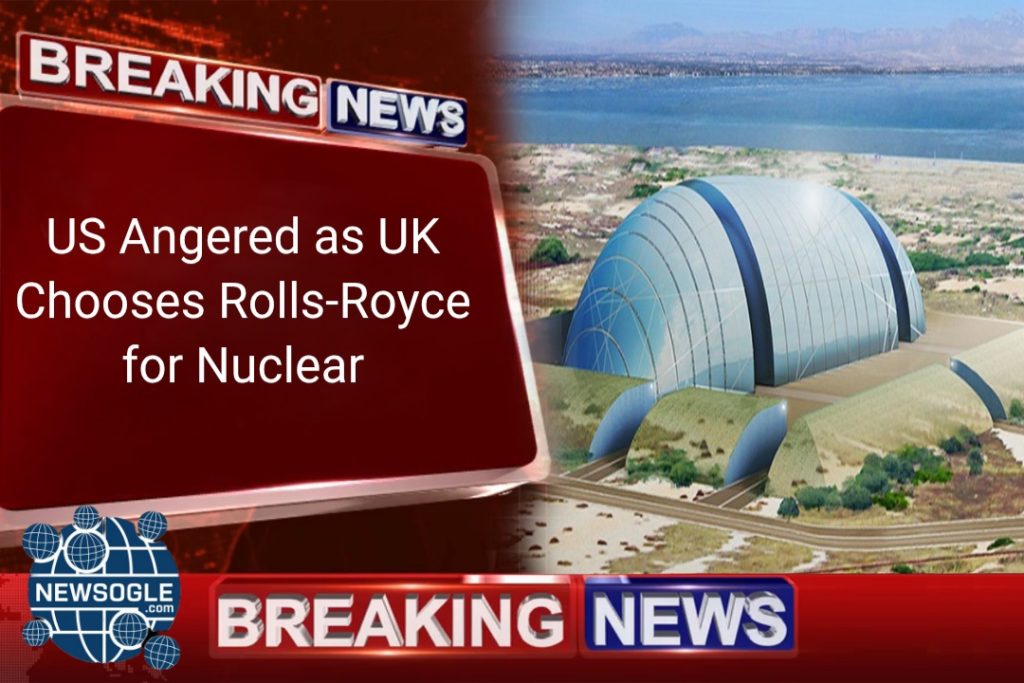
[November 14, 2025] – The United Kingdom’s ambitious push for energy security has ignited a rare diplomatic feud, with the US government expressing “extreme disappointment” over the UK’s selection of Rolls-Royce SMR to build its first fleet of Small Modular Reactors (SMRs).
The Labour government, led by Prime Minister Sir Keir Starmer, confirmed the historic decision to site three Rolls-Royce-designed SMRs at the Wylfa location in North Wales. The project, backed by an initial £2.5 billion investment, is hailed by London as a critical step toward reviving British industrial power and securing the UK’s net-zero goals.
The US Veto: Pushing for Westinghouse
The immediate and sharp backlash came directly from Washington. US Ambassador to the UK, Warren Stephens, issued a strongly worded statement indicating the US was “extremely disappointed by this decision,” which he argued overlooked superior, already-approved US options.
The US was reportedly lobbying intensely for its domestic firm, Westinghouse Electric Company, to take the lead, possibly with a larger-scale reactor or a different SMR design, which they claimed offered a cheaper, faster pathway to low-carbon power. The diplomatic rift comes shortly after the UK and the US signed a nuclear partnership agreement, raising questions about the true nature of the “golden age” of transatlantic energy cooperation.
UK Defends ‘National Interest’ and Homegrown SMRs
Energy Secretary Ed Miliband firmly defended the decision, stating he made “no apologies” for backing a British company for this flagship project. The government’s rationale centers on maximizing the benefits of the Rolls-Royce SMR technology:
- National Capability: Establishing a robust, homegrown nuclear supply chain, reducing reliance on foreign entities.
- Economic Boost: The construction phase at Wylfa is expected to create up to 3,000 jobs and drive billions in investment, particularly in the North Wales region.
- Export Potential: The UK aims to become a global leader in the SMR export industry, with the Wylfa site serving as the crucial demonstration of the factory-built, modular technology.
Each Rolls-Royce unit is designed to generate 470 megawatts, with the Wylfa trio aiming to power around three million homes by the mid-2030s.
Future Nuclear Race: A Test of Loyalty vs. Sovereignty
While the decision on the initial Wylfa SMRs appears final, the row underscores the intensifying global race for dominance in next-generation nuclear power technology. The US disappointment serves as a cautionary signal as the UK continues to scout sites for future large-scale reactors, where Westinghouse remains a strong contender.
For the UK, the move represents a clear priority of sovereignty and UK energy security through the development of Small Modular Reactors—even at the cost of strained relations with its closest ally. The success of the Rolls-Royce SMR project will ultimately determine whether this strategic choice was worth the diplomatic friction.
Keywords: Rolls-Royce SMR, Small Modular Reactors, UK Nuclear Power, Wylfa, US Disappointment, Westinghouse, Energy Security, Keir Starmer, Ed Miliband.

Aleda Kawis is the Professional Journalist and serving in the field since 2012. She keeps extensive experience as investigating journalist and media influencer.




